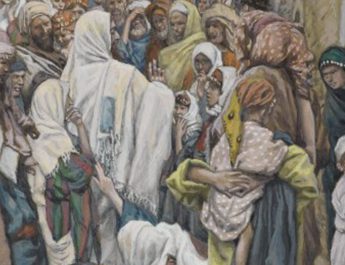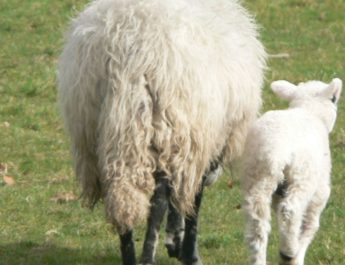BibleHub
To the leader:A with stringed instruments.B A Psalm.C A Song.
Notes on superscript
A “leader” = natsach. Properly, something that glitters from a distance. So, something that stands out, excels, has status/standing (such as a chief musician or superintendent of Temple services). This can also mean to be permanent or enduring.
B “stringed instruments” = nadab. 18x in OT. This is to offer voluntarily, incite, impel; to volunteer to be a soldier or offer freely. In this verse, it is sometimes translated “offer freely.”
C “Psalm” = mizmor. From zamar (making music; used specially of music to worship God; music with singing, singing praise, singing psalms); may be from zamar (to trim or prune). This is a melody or a psalm.
1 May GodD be graciousE to us and blessF us
and make his faceG to shineH upon us, SelahI
Notes on verse 1
D “God” = Elohim.
E “be gracious” = chanan. This is to beseech, show favor, be gracious. Properly, it is to bend in kindness to someone with less status.
F “bless” = barak. This is to kneel, to bless. It is blessing God as part of worship and adoration or blessing humans to help them. It can be used as a euphemism to say curse God.
G “face” = paneh. From panah (to turn, face, appear). This is face in a literal or figurative sense. It could be face, presence, anger, respect. It can also be used of God to indicate divine favor or presence.
H “make…shine” = or. This is to light, shine, set on fire – to be luminous in a literal or figurative sense.
I “Selah” = selah. From salal (to lift up, build, pile, extol, exalt; can also be used for opposing as a dam holds back water). This is to lift up or exalt. Also, “selah” in the psalms where its precise meaning is uncertain. It could be a pause in the music, a moment of silence. It could signal a change in the service or mean something akin to amen.
2 that your wayJ may be knownK upon earth,L
Notes on verse 2a
J “way” = derek. From darak (to tread, march, to walk. Can also mean affixing a string to a box since one needs to step on it to bend it in the process; so also an archer). This is a road as a thing that is walked on. Can be used figuratively for the path that one’s life takes or how one chooses to live one’s life.
K “known” = yada. This is to know, acknowledge, advise, answer, be aware, be acquainted with. Properly, this is to figure something out by seeing. It includes ideas of observation, recognition, and care about something. It can be used causatively for instruction, designation, and punishment.
L “earth” = erets. Root may mean to be firm. This is earth, ground, field land, or country.
your saving powerM among all nations.N
3 Let the peoplesO praiseP you, O God;
let all the peoples praise you.
Notes on verses 2b-3
M “saving power” = yeshuah. From yasha (to deliver, defend, help, preserve, rescue, be safe. Properly, to be open, wide or free, which implies being safe. Used causatively, it means to free). This is salvation, deliverance, health, victory, prosperity.
N “nations” = goy. From the same root as gevah (the back, person, or body); related to gev (among); related to gaah (to rise up). This is nation or people. Often used to refer to Gentiles or foreign nations. It can also be used figuratively for a group of animals. This is where the Yiddish “goy” comes from.
O “peoples” = am. From amam (to darken, hide, associate; creating shadows by huddling together). This is people or nation. It can be used specifically for a tribe, collectively of troops or armies, or figuratively to refer to a flock of animals.
P “praise” = yadah. From yad (hand). This is to throw one’s hands into the air in a gesture of praise. So, it is to praise, give thanks, or make a confession.
4 Let the nationsQ be gladR and sing for joy,S
Notes on verse 4a
Q “nations” = leom. Root may refer to gathering. This is people, a community, or a nation.
R “be glad” = samach. This is to rejoice or be glad. Properly, it is to brighten up in a literal or figurative sense.
S “sing for joy” = ranan. This is a cry of joy or a joyful song. Properly, it is emitting a shrill sound, especially one of joy.
for you judgeT the peoples with equityU
and guideV the nationsW upon earth. Selah
Notes on verse 4b
T “judge” = shaphat. This is to judge, defend, pronounce judgment, condemn, or govern. It can refer to God judging or to human judges. This is pronouncing a verdict in favor or against so it implies consequences or punishment. It can also mean to litigate or govern as one with authority.
U “equity” = mishor. From yashar (to be straight, right, even, smooth, or agreeable; figuratively, to make something pleasant or prosperous) This is a level place like a plain. It can also be the proper name of a level place. Figuratively, it can refer to straightness in the sense of justice, equity, fairness, righteousness, or uprightness. It can also refer to a concord.
V “guide” = nachah. This is lead, guide, or bring. It can be used for transporting into exile or coming in as colonists. This is the word used in Psalm 23 “he leads me in the paths of righteousness.”
W “nations” = leom. Same as “nations” in v4. See note Q above.
5 Let the peoples praise you, O God;
let all the peoples praise you.
6 The earth has yieldedX its increase;Y
God, our God, has blessed us.
7 May God continue to bless us;
let all the endsZ of the earth revereAA him.
Notes on verses 5-7
X “yielded” = natan. This is to give, put, set, offer. It is to give literally or figuratively.
Y “increase” = yebul. 13x in OT. From yabal (to lead, bring, carry, conduct; properly, to flow; to bring or lead with fanfare). This is yield, produce. Literally, it refers to crops and figuratively to wealth.
Z “ends” = ephes. From aphes (to finish, fail, stop, come to nothing, disappear). This is an end, ceasing, no further. It is often used to refer to the ends of the earth.
AA “revere” = yare. This is to fear, be afraid, dreadful. It can also refer to fearful reverence – to fear in a moral sense is to say to revere, respect.
Image credit: “Creative Independence” by nattu in the Maldives, 2007.




